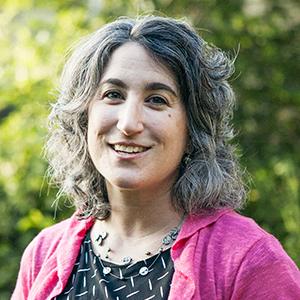“Under our current COVID-19 related restrictions, neither my sister nor I will be able to attend the funeral our father, who died in another state. Instead, we’ll be watching it live-streamed from the funeral home’s website. What are some mourning rituals we might be able to do from our homes?”
Our condolences to you, and to so many others who are mourning from afar. May your father’s memory be a blessing.
In Judaism, we are not obligated to attend a funeral if it puts us at risk of injury or illness, even if the person whose life we wish to honor is our own parent. In addition to participating remotely through a livestreamed funeral service, you can observe a number of Jewish mourning customs from home in to honor the memory of your father:
- Light a . If a 24-hour candle is unavailable to you, substitute any candle, or leave on an electric light for 24 hours.
- Sit shiva… virtually. Plan an online shiva (the week-long mourning period after a death) gathering for during the first week of the mourning period. During this time, you may wish to share memories of your loved one with “visitors.” Your rabbi or cantor may be able to help you arrange a virtual gathering for your family and friends.
- Recite prayers of mourning. While such prayers are usually said in a minyan, a prayer quorum, of 10 people, it is accepted practice during the pandemic to convene prayer minyanim via videoconference. Find the words, translation, and audio of Mourners’ Kaddish. You might choose to recite this prayer to mark the conclusion of shiva or sheloshim, the 30-period following a death.
- Say a personal prayer of forgiveness. Forgive your deceased loved ones for any wrongs or hurts they may have caused you, and ask for their forgiveness in kind.
- Pay it forward. Do an act of kindness in your loved one’s memory, and/or give tzedakah (charity) in your loved one’s name.
- Engage in Jewish study. Dedicate a session to your lost loved one. For study ideas, explore our website further, starting on our Learning page.
- Eat a comforting meal. Traditional foods eaten after the death of a loved one include round-shaped foods, such as lentils and hard-boiled eggs, symbolizing the cycle of life.
Lastly, it is customary to have a ceremony to unveil the cemetery marker 30 days to a year after the death. When the pandemic is behind us and it is again safe to gather in person, holding an “unveiling” ceremony at your father’s place of burial can bring you added comfort.
Learn more about death and mourning in the Jewish tradition, and use our easy find-a-congregation tool to locate a Reform Jewish synagogue in your area whose clergy may be able to help you through this difficult time.

